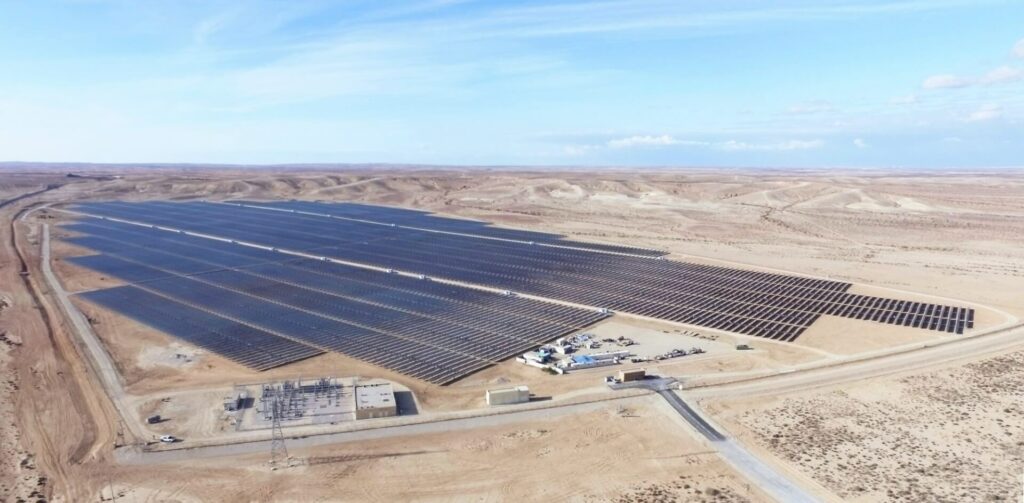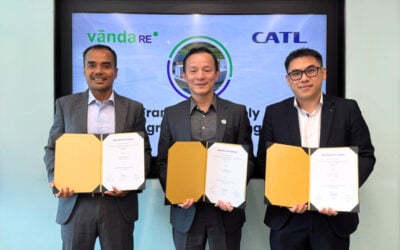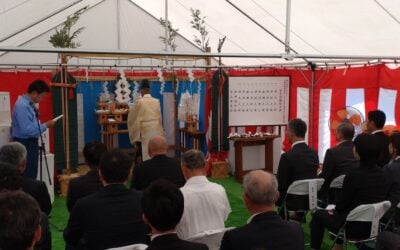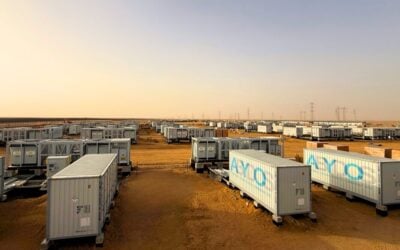
In an effort to drive the country to deploying more energy storage, the Israeli Ministry of Energy and Infrastructure has announced four large-scale battery storage projects.
The government ministry – renamed from the Ministry of Energy in February to reflect a wider remit – said yesterday (2 May) that it is promoting a programme to construct the four sites in the northern Gilboa mountain range region.
Enjoy 12 months of exclusive analysis
- Regular insight and analysis of the industry’s biggest developments
- In-depth interviews with the industry’s leading figures
- Annual digital subscription to the PV Tech Power journal
- Discounts on Solar Media’s portfolio of events, in-person and virtual
The buildout will total 800MW/3,200MWh, comprising four facilities of 200MW, each with four hours’ storage duration.
Describing it as a “programme of great importance for the energy sector,” the ministry said it represented a first step in planning large-scale energy storage facilities at strategic locations on the grid. Future projects will be built in stages according to the network’s needs, and will leverage different storage technologies.
Israel’s great need for energy storage, is like many other countries’, driven by a requirement to integrate growing shares of renewable energy on the grid. This is exacerbated by Israel’s status as an energy island, despite its small land mass being without interconnection to neighbouring countries and largely needing to be self-sufficient.
As regular readers of Energy-Storage.news will know, Israel’s policy goal of reaching 30% renewable energy by 2030 – roughly equivalent to about 12GW of solar PV, likely to be the go-to renewable energy source in an almost-always sunny part of the world – has been modelled by the national energy regulatory authority, PUA, to need around 2GW/8GWh of energy storage to effectively integrate.
Steps already taken by the country include tenders for large-scale and off-grid solar-plus-storage plants, with a 2020 competitive solicitation leading to awards of contracts for 777MW of solar PV with 3,072MWh of battery storage. A subsequent 2021 round awarded contracts to 609MW of PV and 2.4GWh of energy storage.
More recently, last month the PUA implemented a supplementary tariff for distributed solar PV plants paired with energy storage, aiming to subsidise customers that shift stored solar energy for self-consumption at night-time periods and mitigate grid demand for energy at those times.
The role the 800MW of government-initiated projects in Gilboa will play is somewhat similar, but on a much larger scale. Renewable energy generated in the nearby northern regions of the country will be stored in the battery energy storage system (BESS) facilities, transmitted to urban demand centres at times of peak demand.
The four plants will be built close to an existing national power transmission line, in a region that the ministry said is also close to industrial areas, including some that already exist and others that are in development. There are also plenty of solar PV plants near to the 71 acre site earmarked for the BESS projects.
Energy and infrastructure minister Israel Katz said the projects will be a “first of their kind” for Israel in terms of standalone large-scale storage resources “with a significant capacity,” and represent part of an “overall policy and reform” that the minister is leading in the Knesset.
“Storing the energy in this way will allow us to increase the production of renewable energies, improve the reliability of the electricity supply and stabilize the functioning of the network – steps that will directly contribute to the growth of the economy,” Katz said.
“We are committed to promoting renewable energies and the current move is a significant step towards achieving this goal.”
‘Israel could need 10GWh of storage by 2030’
Commenting on the ongoing push to deploy energy storage to integrate renewables, Eitan Parnass, founder of the Green Energy Association of Israel, said that the requirement is probably more likely closer to 10GWh than 8GWh.
Of the solar PV it needs to arrive at its 30% goal, Israel is still “far away,” Parnass told Energy-Storage.news, with 4.5GW of renewables in total (92% of which is PV), representing 10% of the national energy mix.
Schemes such as the recent PUA tariff for low-voltage distributed PV with storage are aimed at mitigating grid congestion issues which mean it is nearly impossible to connect new rooftop PV systems – excepting residential – Parnass said. Reforms of the grid are also underway but will likely take years to implement, the Green Energy Association director general said.
The ministry is currently also promoting TMA, an outline plan for energy storage facilities, including formulating regulations for planning procedures and permitting. The national outline plan will now be submitted by the National Planning and Construction Council for government approval, the Ministry of Energy and Infrastructure said yesterday.






